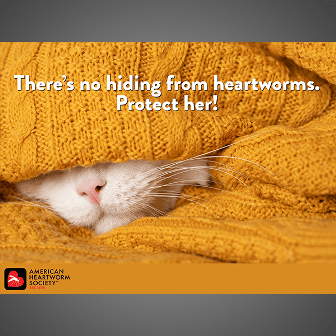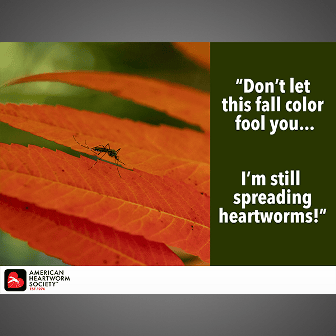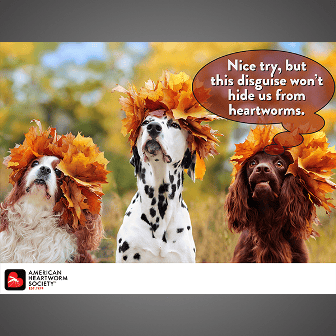Batavia, Illinois – The American Heartworm Society strongly urges pet owners to continue year-round heartworm prevention medication for their pets. It’s important not to cut back on preventatives as failing to administer them could cause harm to pets, and could actually increase the financial burden if heartworm disease treatment is needed. The warning comes as this year's increase in precipitation, widespread flooding across the country and surge of hurricanes has greatly increased the mosquito population. An increased mosquito population creates a greater potential for heartworm disease, even in indoor dogs and cats.
"As the United States economy continues to struggle, we as Americans closely inspect our monthly spending for what is and isn't necessary. It's tempting to cut preventative heartworm care for pets, but the cost of prevention is still relatively low compared to the cost of treatment if heartworm disease is diagnosed. Both dogs and cats may needlessly suffer and possibly die from this completely preventable disease. The risk from the increased mosquito population makes the need for prevention even greater this year," says Dr. Sheldon Rubin, American Heartworm Society president and Chicago area practitioner.
While there is no approved treatment for feline heartworm disease, it is easily prevented. The clinical presentation of feline heartworm disease has recently been redefined as Heartworm Associated Respiratory Disease (HARD), an infection that can often lead to severe lung disease and sudden death. HARD is defined as such because heartworm disease may appear as respiratory signs which have frequently been misdiagnosed as feline asthma or allergic bronchitis. Through the KNOW Heartworms campaign, www.knowheartworms.org, the American Heartworm Society has partnered with the American Association of Feline Practitioners and Pfizer Animal Health to educate veterinarians and cat owners about this preventable disease.
While heartworm disease treatments are available for canines, the process of treating an infected dog is much more costly and dangerous than preventative measures. The treatment consists of a series of injections with a drug called melarsomine. The process is often painful and sometimes risky for the animal. Depending on the severity of the disease, the expense of treatment can run into many thousands of dollars.
Informational brochures, both canine and feline, are available from the American Heartworm Society, and generously provided by an educational grant from Pfizer Animal Health. They are also available from veterinarians. Visit the Society's web site at www.heartwormsociety.org for further information.
The American Heartworm Society, headquartered in Batavia, Illinois, is the global resource for the prevention, diagnosis and treatment of heartworm disease and was formed during the Heartworm Symposium of 1974. The American Heartworm Society stimulates and financially supports research, which furthers knowledge and understanding of the disease.








